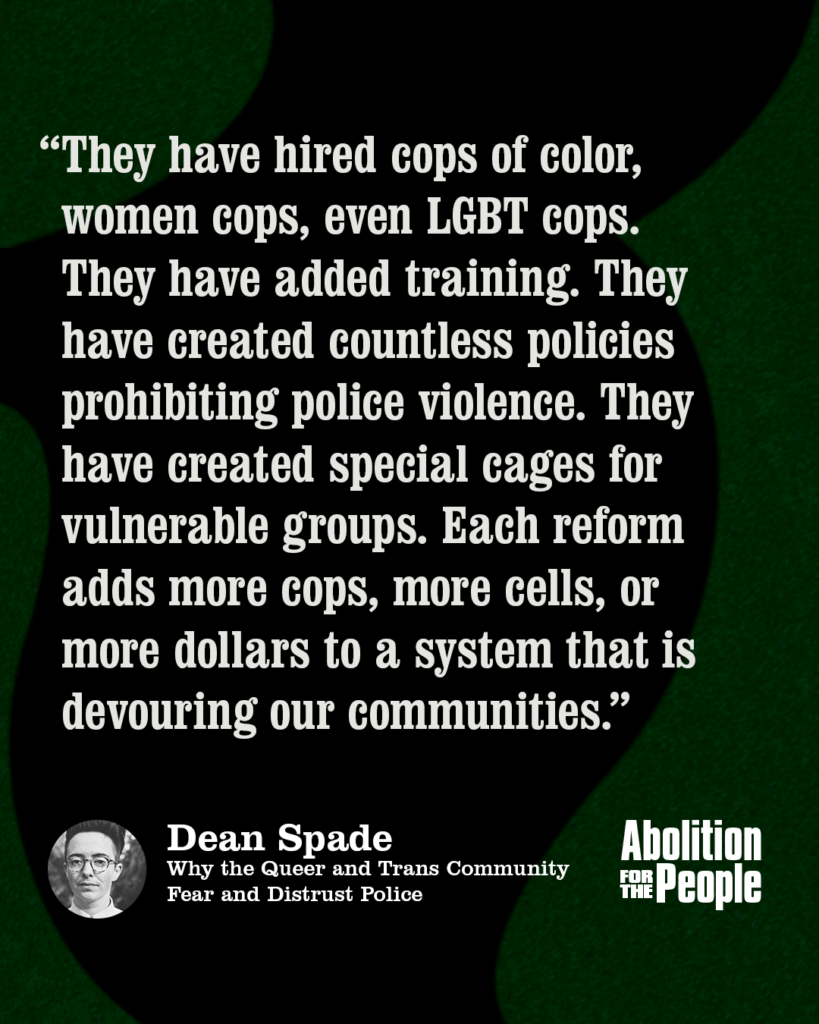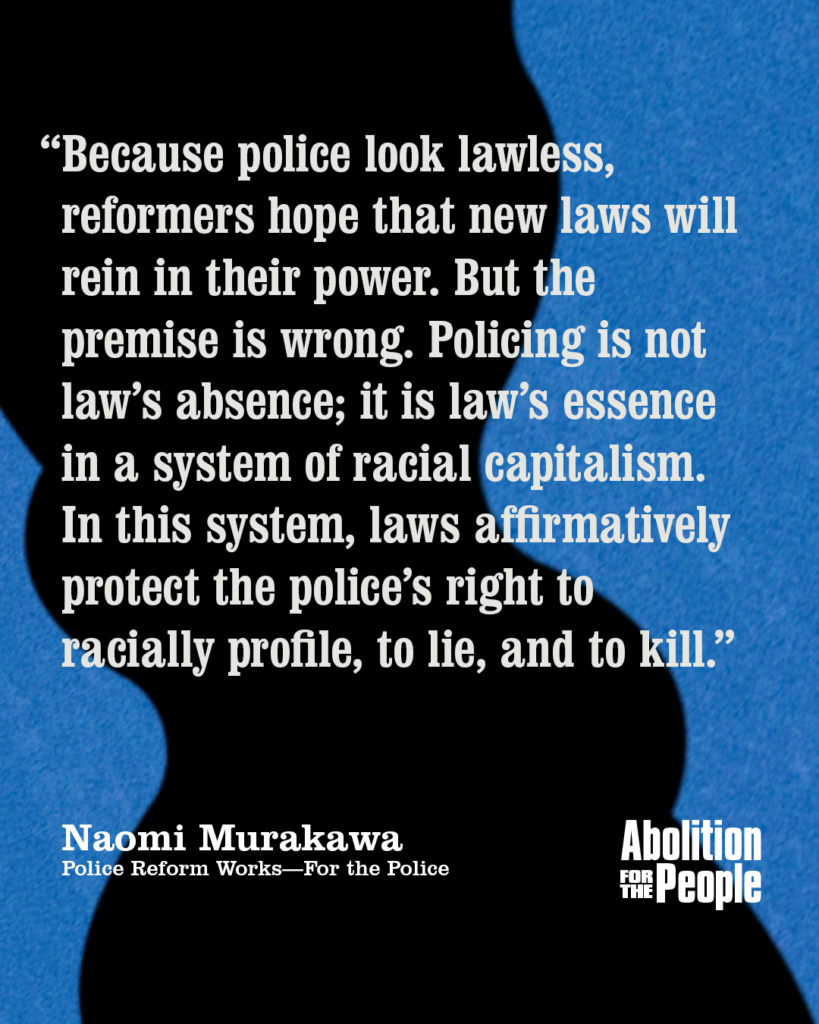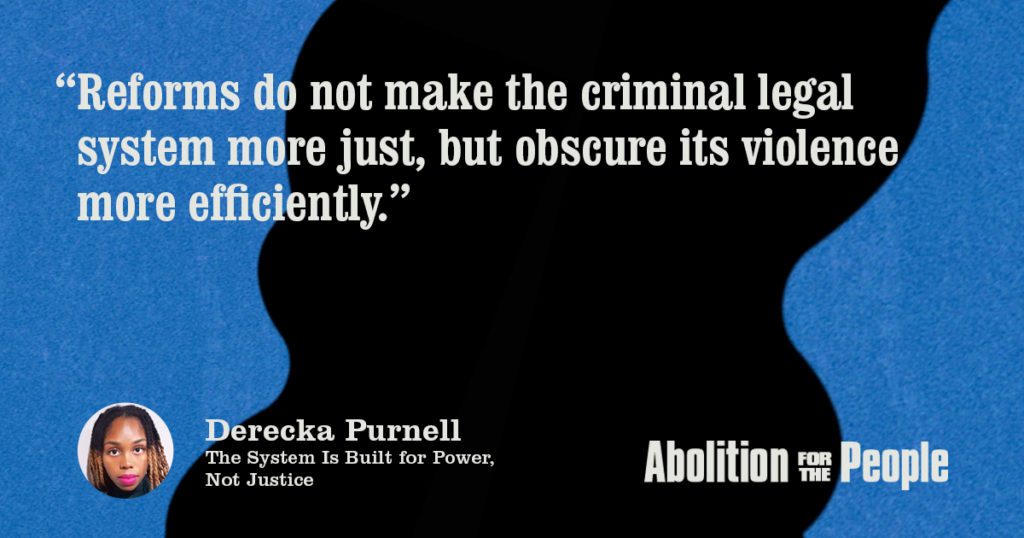On Jan 25 I gave this lecture as part of UC Berkeley Department of Gender and Women’s Studies Social Reproduction in Crisis Series. See below for the flyer that lists all the other upcoming events!
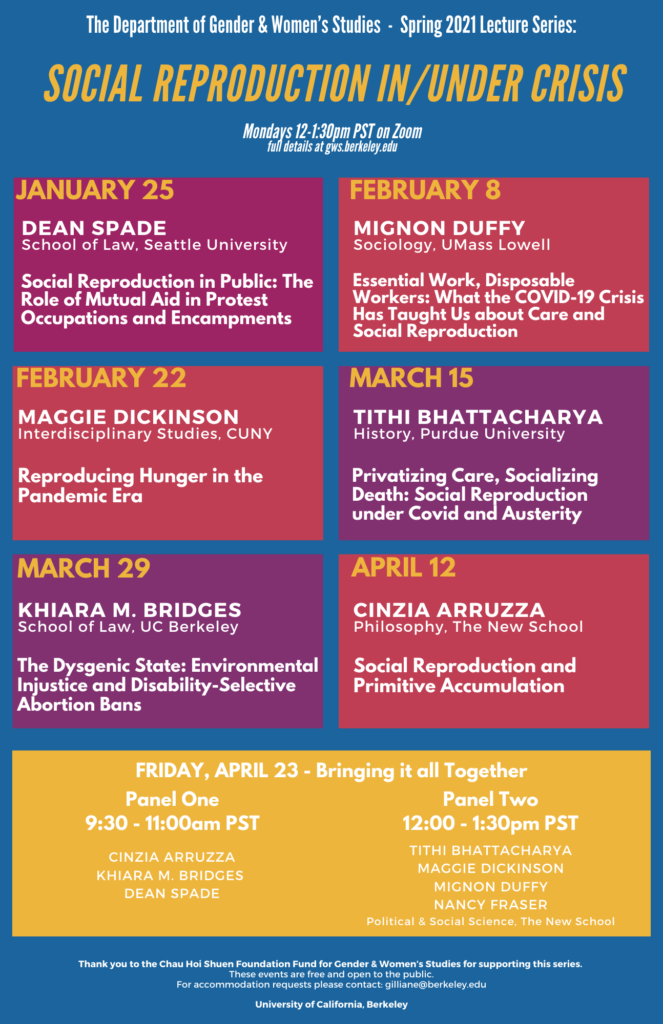
On Jan 25 I gave this lecture as part of UC Berkeley Department of Gender and Women’s Studies Social Reproduction in Crisis Series. See below for the flyer that lists all the other upcoming events!

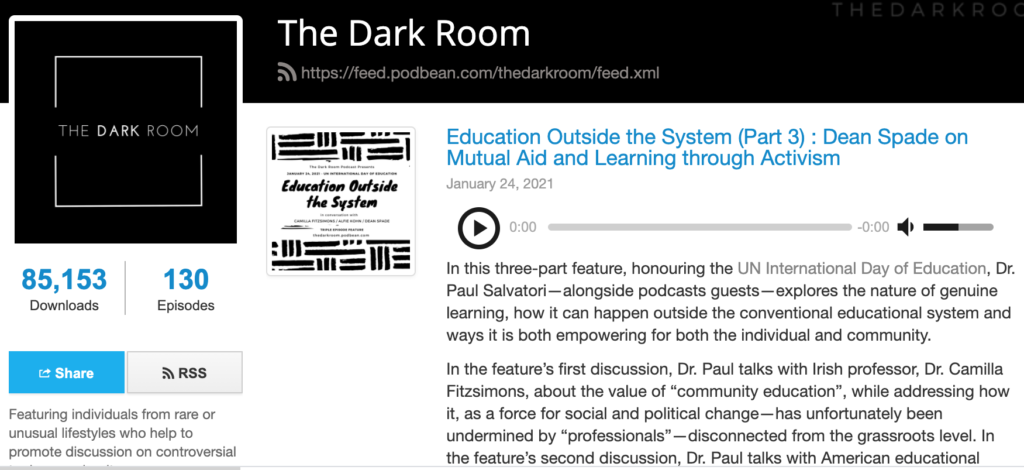
I had a very fun conversation with Paul Salvatori on this podcast episode. Have a listen!
In a new book, Seattle University’s Dean Spade highlights how the organizing and survival tactic could be vital for future disasters.
January 7, 2021

Seattle Community Fridge is a mutual aid group that sprang up during the pandemic. From left, volunteers Beija Flor, Jordan Saibic and Marine Au Yeung install a community refrigerator offering free food in Seattle’s South Park neighborhood, Aug. 20, 2020. (Dorothy Edwards/Crosscut)
Rewinding the film of 2020, it can seem like a lifetime of events transpired in a 365-day span. A pandemic. An economic crisis. Some of the largest protests the U.S. has ever seen. A historic election. Many people are lonelier, hungrier and poorer than ever. But despite the social distance and devastation — and because of it — people also came together.
Continue reading “Crosscut Feature about Mutual Aid”I am a huge fan of the Its Going Down Podcast so I was very excited to be interviewed about my new book on mutual aid.
Clara Liang recently interviewed me for In These Times.
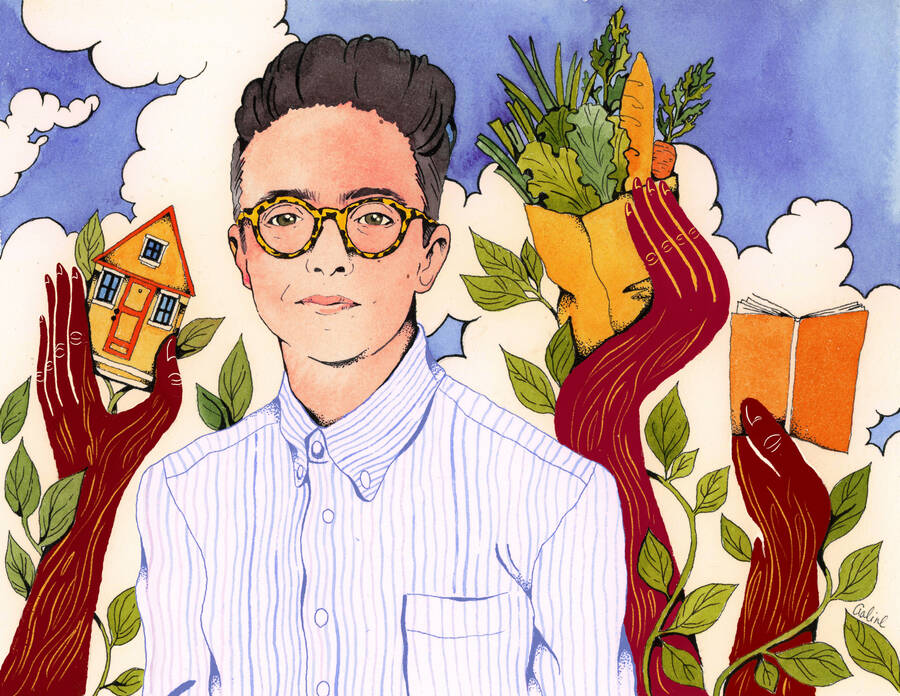
Amid the catastrophe of the pandemic, climate emergency and racist state violence, mutual aid has exploded. Ordinary people around the globe, from Seattle to Nigeria, are finding ways to support each other when the government won’t.Mutual aid isn’t just that we help each other. We help each other based on a shared recognition that the systems aren’t delivering and are actually making things worse. We’re simultaneously building a movement to address the root causes of the crisis we’re in.
Continue reading “New Interview about Mutual Aid with In These Times”Last week, Mariame Kaba and Ejeris Dixon joined me in a conversation about mutual aid, transformative justice and abolition. It was one of the best public conversations I have ever been part of and I highly recommend watching the recording!
In advance of that event, Barnard College interviewed me about mutual aid.
I also recently spoke to KUOW’s Bill Radke on The Record. You can listen here.
Last week I launched my new book, Mutual Aid, in conversation with Whitney Hu, hosted by Community Bookstore. You can watch the event video if you missed it.
Verso also recently gave me the opportunity to write a short descriptive list of five books that have influenced my thinking about mutual aid. You can read the essay, which focuses on the work of the Black Panther Party, the Young Lords, No One Is Illegal, and INCITE! and includes writing by Peter Gelderloos, Alondra Nelson, Harsha Walia, and others.
I encourage you to listen to all the episodes of the Death Panel podcast, including my recent conversation with them about mutual aid, COVID, poor relief histories, law, and more.
Finally, I wanted to note that my new book is part of a four-book series from Verso about COVID and care. Collect all four!

As part of celebrating the release of my new book on #mutualaid this week from Verso Books, I wrote this little piece highlighting 5 books that demonstrate how mutual aid is central to movements for transformative change. Check it out!
https://www.versobooks.com/lists/4876-5-book-plan-mutual-aid
In case you missed it, Colin Kaepernick recently invited a bunch of abolitionist activists to write essays for a collection that his publishing platform has released over the course of the last four weeks in collaboration with Medium. The essays are really really really good–the whole collection would be a great syllabus for a class or reading group. I was honored to be included.
